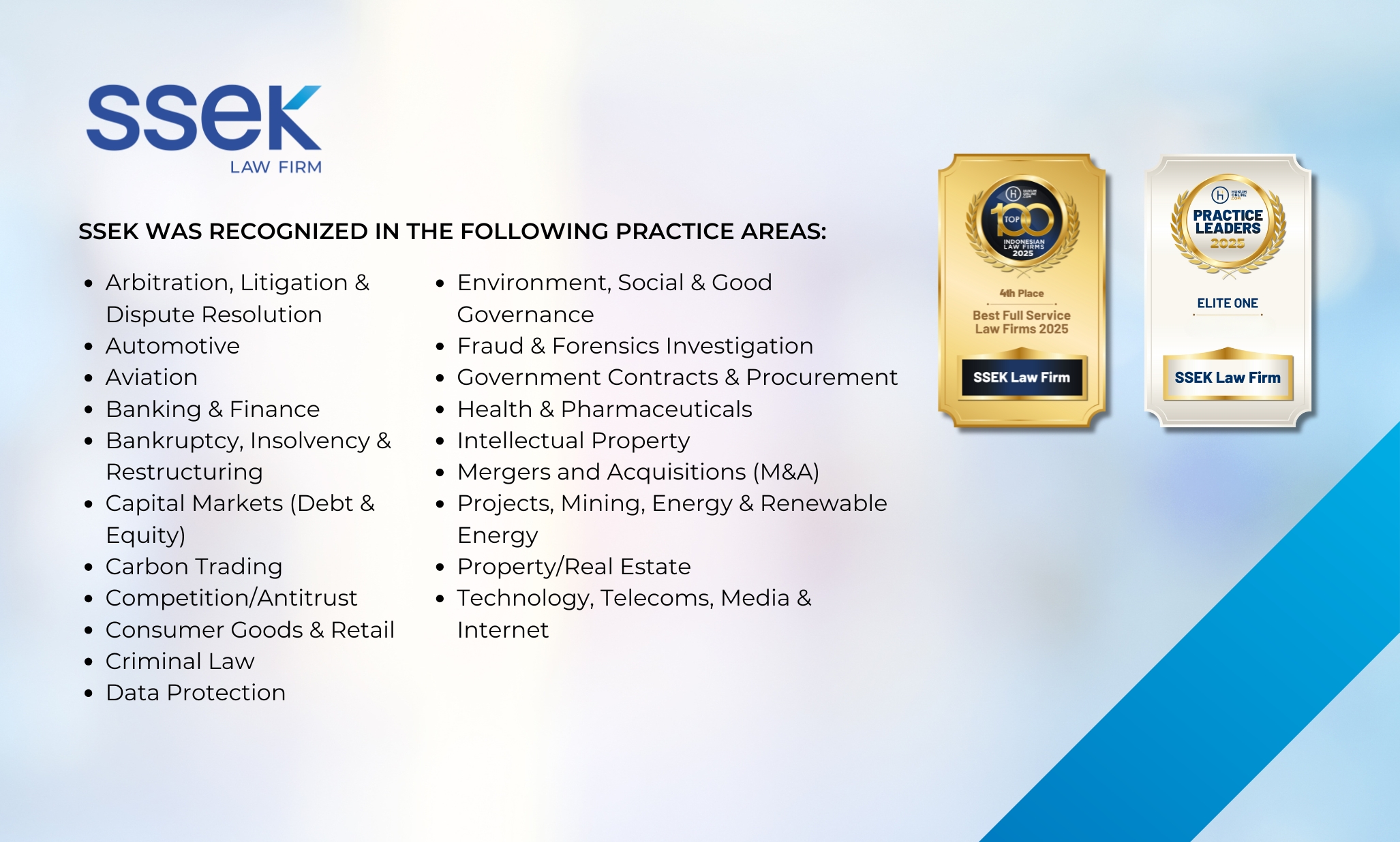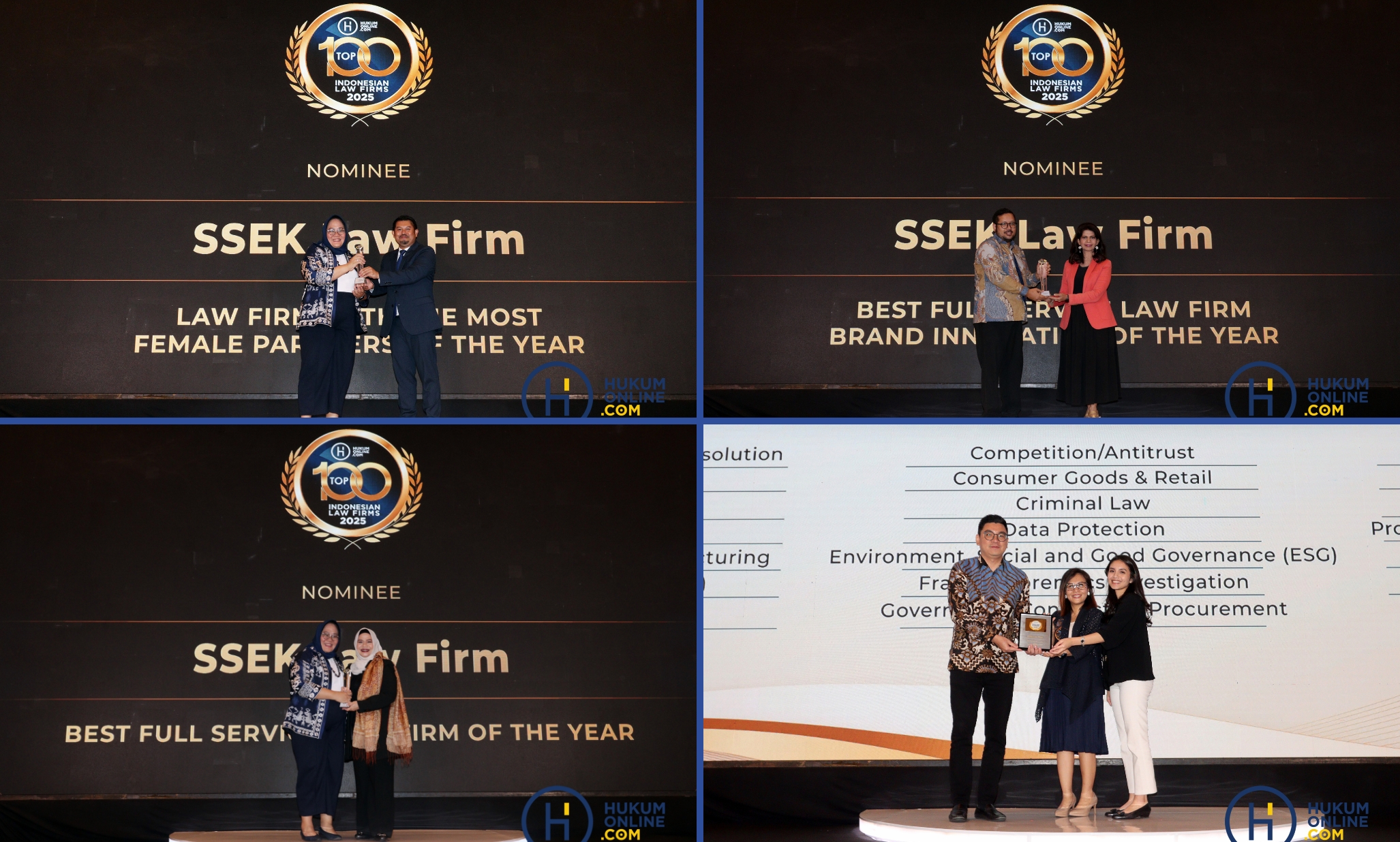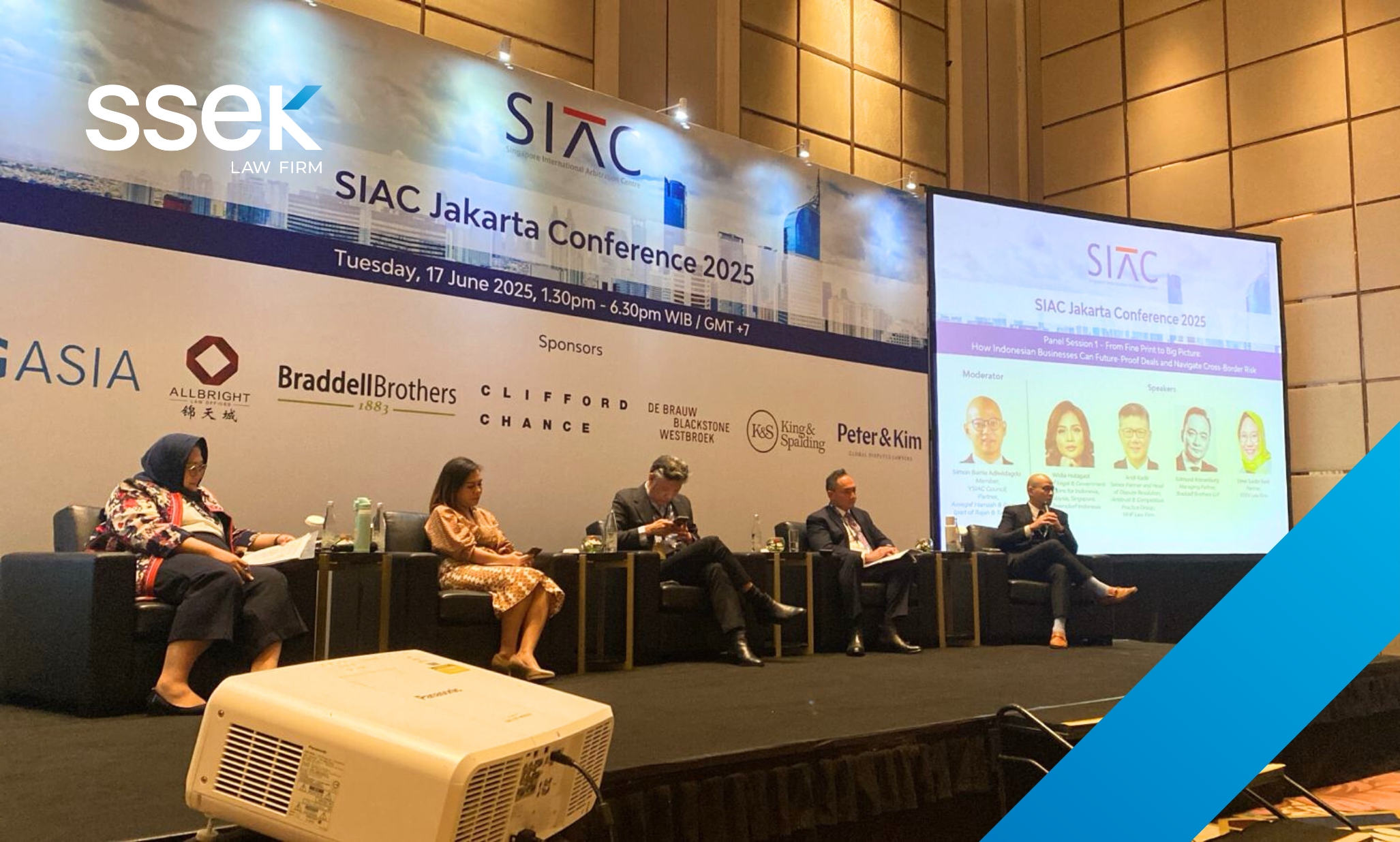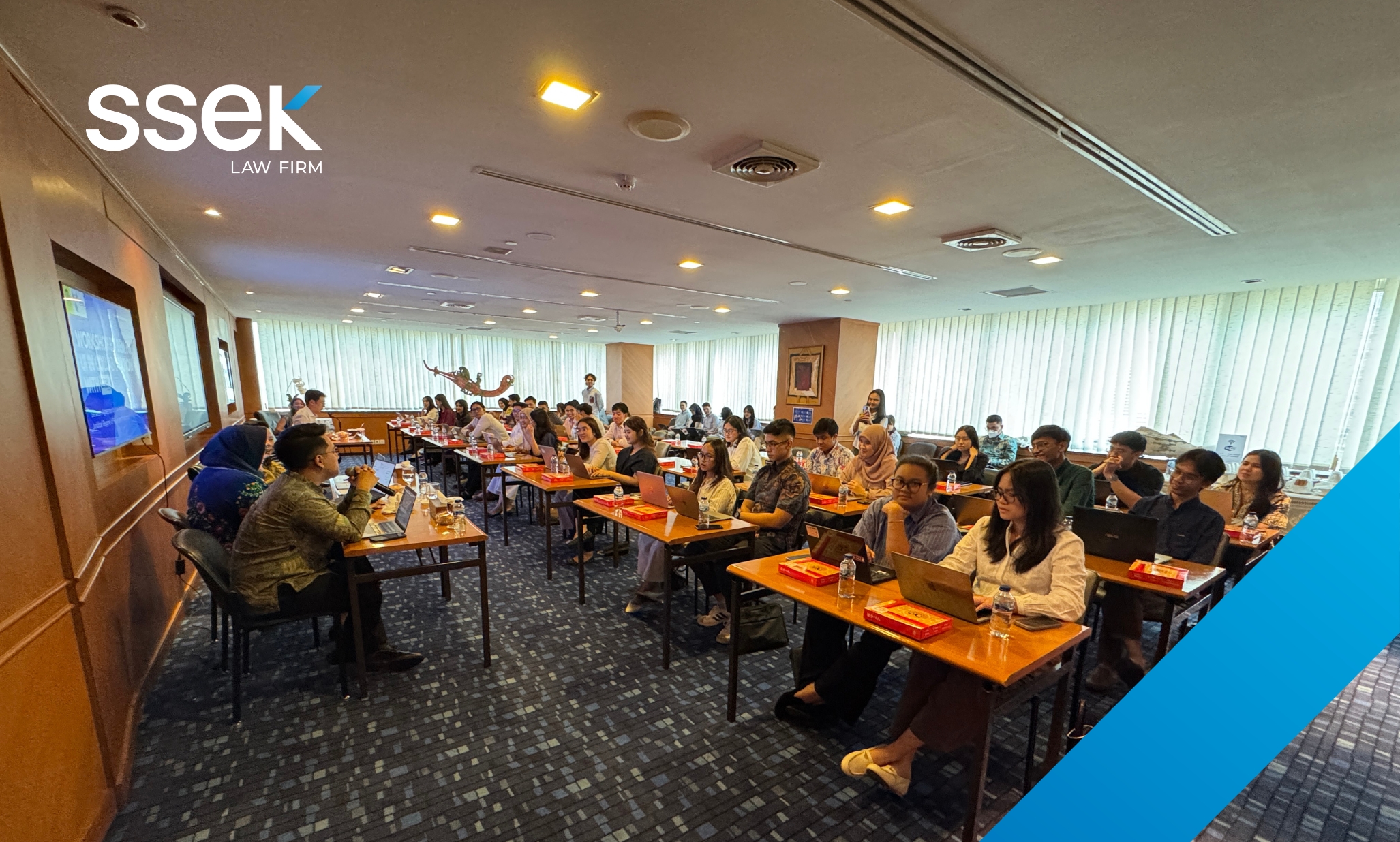

Being close neighbours, Indonesia and Singapore have extensive economic and human ties, and many businesses in one of the countries have operations or presence in the other. Catherine Shen of the Asian Business Law Institute (ABLI) spoke to Michael S. Carl, Senior Foreign Legal Adviser at SSEK Legal Consultants, on his first-hand observations of the Indonesian market and in particular the country's corporate restructuring procedure, PKPU.
ABLI: As a US-trained practitioner, what brought you to Asia and then to Indonesia specifically?
Michael S. Carl (MSC): I did not travel much as a child but I dreamed of worlds afar. In fact, my fifth-grade teacher wrote in my yearbook, "to my future world traveller". In high school, I had the chance to represent my state on a summer stay programme in Tokyo sponsored by the Japanese Government. This was during the great trade wars between Japan and the US during the Reagan years, and the purpose of the trip was to foster "soft power" understanding between the peoples. I was hooked.
At Harvard, I had a very good friend who was an Australian but did his high school at the United World College in Singapore. He described a summer spent traveling in Indonesia. It sounded exotic and wonderful: friendly people, tropical living, a relatively accessible language and culture and, most importantly, hardly anyone in the US had ever heard of it. I already knew I wanted to be a lawyer, so I thought, why not be a lawyer in Indonesia.
Of course, I needed training first. So, after finishing law school at Berkeley, including some time as an exchange student at the Gadjah Mada University in Yogyakarta, I spent most of the next ten years with international firms in Singapore while still specializing in Indonesia - Coudert Brothers, Milbank, and Baker McKenzie. Then in 2003 an opportunity opened at my present firm, SSEK, and I decided it was time to take the leap. One of SSEK's founding partners is Ira Eddymurthy whom I had known as a student at Berkeley. It was an easy choice to make. I have been a devoted fan ever since, and even went so far as to earn an Indonesian law degree on top of my US degree.
ABLI: Over the years, have you noticed any change in your Indonesian clients? Or more broadly, change in the country's legal system development?
MSC: Indonesian clients have moved to the international standard. They are so much more demanding now, and are very concerned about fees. Before the 1997 Asian Financial Crisis, they were much more easy-going, and getting paid a decent fee was not so hard.
My core clientele, however, is foreign clients, especially recent entrants to the Indonesian market who need someone who understands their concerns and perspectives, and who can work to translate that into localised legal advice designed for international consumption.
With all clients, I work very closely with Indonesian lawyers, and we deliver the work as a team, even jointly sign all advice memoranda. But this is especially true with Indonesian clients, whom I find appreciate a multi-cultural approach, to ensure the advice is appropriate to their needs, much like my foreign clients ask of me when coming from the opposite direction.
As for the legal system, there is now much more choice in how disputes are to be settled, not just the courts, but domestic and international arbitration as well. And the number of laws and regulations has exploded exponentially. When I first arrived in Indonesia, an Indonesian lawyer could stack everything you needed to know in a nice, neat little pile on your desk. Now the lawyer must constantly go online. There is a law or regulation for everything, and they are constantly changing!
ABLI: From your experience, is there indeed an increase in the number of Indonesian businesses looking to restructure their debts overseas? If so, what are some of the more popular go-to jurisdictions and why?
MSC: There seems to be a real but limited - and perhaps growing - market to structure Indonesian debts overseas. Obviously, this is for specific indebtedness, generally an international issuance of bonds, and not an Indonesian company's entire indebtedness.
There is always the problem of jurisdiction, and I don't believe that Singaporean or any other foreign courts would find jurisdiction over most Indonesian debts. Moreover, Indonesian courts will never recognise the jurisdiction of a foreign court - unless the indebtedness so provides. But even where the indebtedness provides for foreign court jurisdiction, there is the issue of enforcement, because Indonesian courts will not enforce foreign court judgments, only foreign arbitral awards. Obviously, a debt restructuring is a court-supervised activity. So the enforcement of a foreign court-directed restructuring in Indonesia becomes a real issue.
On the other hand, a foreign court is more likely to understand the complexities of a foreign debt instrument, albeit one issued by an Indonesian issuer, and so the foreign court, with its tailored procedures and knowledge of the substantive foreign governing law, may be best positioned to lead the restructuring of that particular instrument and to set the operable terms by which holders of that instrument may be required to participate later in a larger restructuring of the Indonesian debtor.
The use of foreign courts to restructure Indonesian debt is also very new, and I think the jury is still out on whether it will work in practice. But if it does, Singapore is obviously the place to go. Indonesians are generally comfortable with Singapore and believe they will get a fair hearing there. Singapore is also both close and much better acquainted with Indonesia than just about any other major legal seat outside Jakarta.
ABLI: A substantial body of cases has been developed for PKPU, yet the procedure still appears somewhat "mysterious" to counsel outside of Indonesia. What advice would you give to a foreign creditor who is to experience PKPU for the first time?
MSC: I still remember being part of the team working on the first Arpeni PKPU many years ago. We had to read and discuss the provisions of the Indonesian Bankruptcy Law itself, which was still new at that time. No one quite understood what much of it meant. Finally, my Indonesian colleagues and I decided that, where the law was unclear, then just about anything not inconsistent with the fairly broad parameters of the law was fair game. Flexibility was the general rule. For example, the objective of a PKPU is the generation of an approved Composition Plan. Yet the Bankruptcy Law says very little about the form or substance of that Plan. That means anything goes, my colleagues decided, provided you could get the requisite creditor votes.
Today that is still very much the case. However, a seasoned and talented insolvency litigation bar has now developed in Indonesia. People know the Indonesian lawyers who are big players in this field, and those lawyers are very experienced. They have developed an informal yet almost "common law" of PKPUs among themselves. To the outsider this may still seem somewhat mysterious, because it is not documented, but Indonesian banks and other serial users of the PKPU process have come to understand better what to expect in the end.
My advice to a foreign creditor experiencing a PKPU for the first time would be to find an Indonesian-qualified lawyer with the requisite experience, but not necessarily in leading PKPUs for debtors who are undergoing restructuring. Rather, what a foreign creditor needs is an Indonesian lawyer experienced in foreign creditor representations who can explain to the creditor the range of potential outcomes and minimise surprises down the road.
Michael Carl will be speaking at a webinar co-organised by ABLI and INSOL International on 29 March to discuss the use of Singapore and other offshore jurisdictions to restructure Indonesian companies. Together with his co-speakers, Tahirah Ara, Managing Partner Singapore and Head of Asia of Mishcon de Reya LLP, and Meiyen Tan, Partner and Head of Restructuring & Insolvency of Oon & Bazul LLP, Michael will help demystify PKPU for the audience and share insights of other fascinating issues surrounding this procedure.









